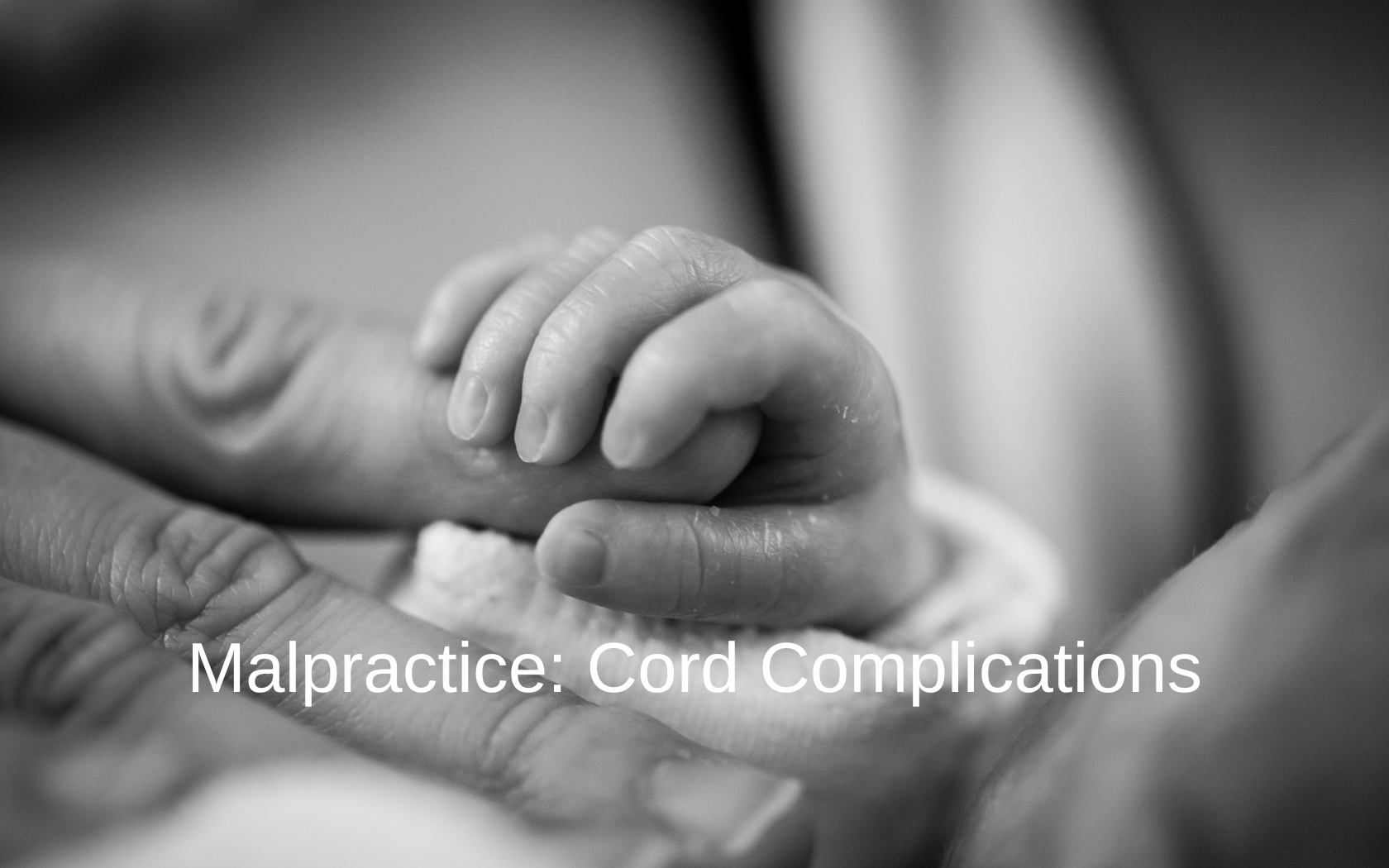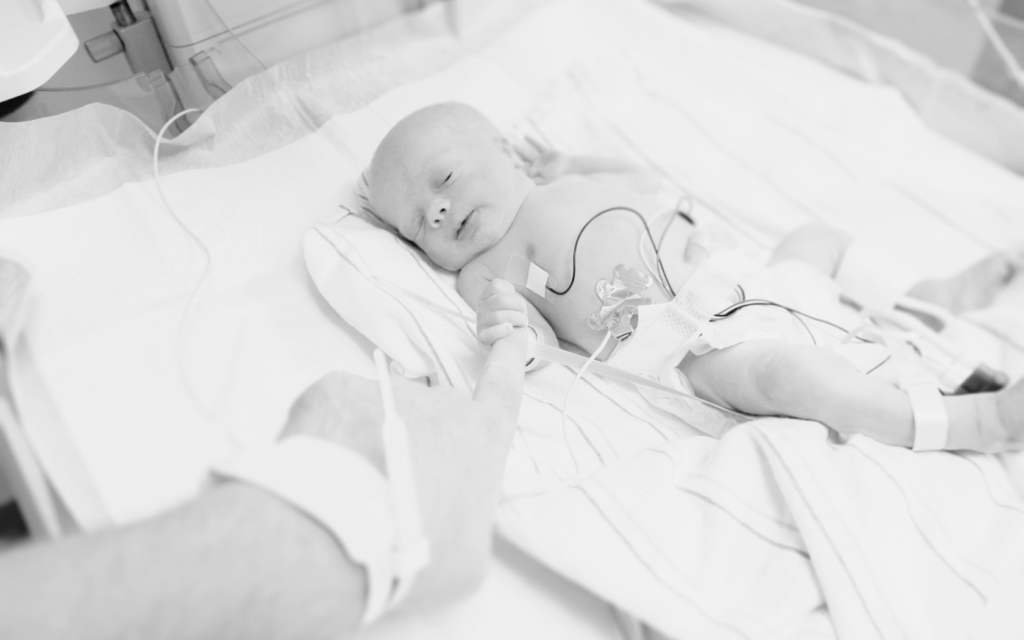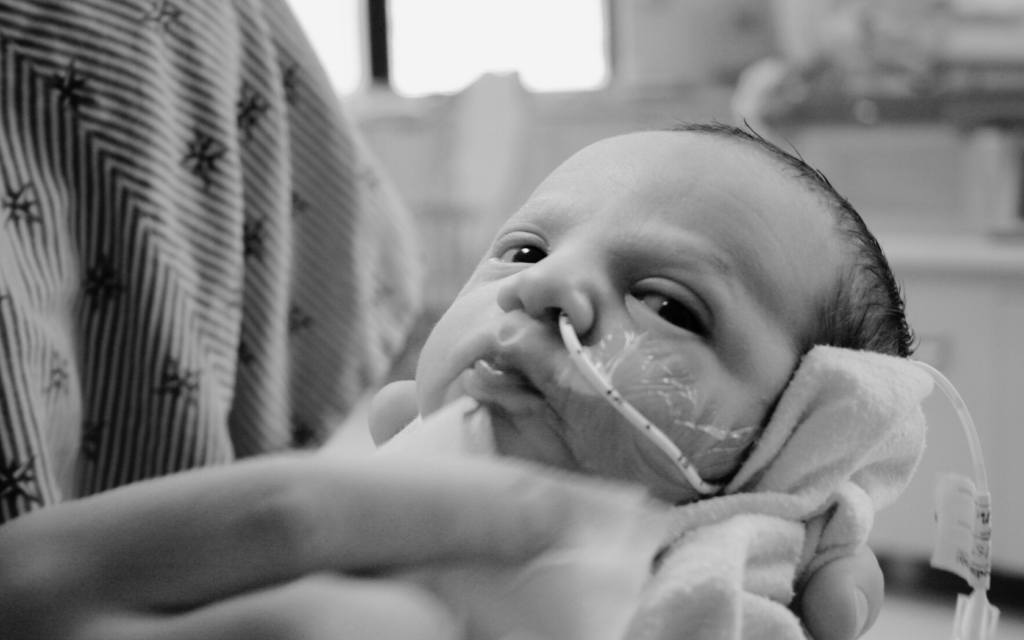While navigating a highway, you don’t want to miss the signs for your exit. Doing so could turn your 10 minute trip into a 30 minute one! Likewise, there are consequences for missing the signs of umbilical cord problems in pregnancy. But these can be much worse than an inconvenient detour.
Here we’ll describe what the signs of umbilical cord issues are, and what might happen if doctors miss them.

Most Common Umbilical Cord Problems
Most pregnancies progress without any issues related to the umbilical cord. Even so, it’s important to know the signs of umbilical cord problems, because they can cause lasting health problems or even stillbirth.
One study found that umbilical cord knots, torsions, or strictures happen in 0.3-2.1% of pregnancies. Those issues cause stillbirth in 8-11% of cases.
Common umbilical cord problems include:
- Cord Compression. The cord is pinched or compressed, reducing the flow of oxygen and nutrients to the baby.
- Cord Prolapse. The cord slips through the cervix ahead of the baby, compressing it during contractions.
- Cord Knots. When a baby moves around a lot in the womb, knots can form. Many knots are harmless. Others can tighten and affect blood flow.
- Nuchal Cord. The umbilical cord wraps around the baby’s neck. It may come loose on its own. In some instances, it can cause problems during labor and delivery.
- Vasa Previa. This is a rare condition where fetal blood vessels cross or run near the cervix. If the vessels rupture, it can lead to severe bleeding for both the mother and the baby.
- Single Umbilical Artery (SUA). A normal umbilical cord has two arteries and one vein. With SUA, one of the arteries is absent. Many babies with SUA are healthy, but others have congenital abnormalities.
- Umbilical Cord Cysts. These cysts can be benign. However, some are associated with chromosomal abnormalities.
- Velamentous cord insertion. This is when the cord attaches to the fetal membranes instead of the placenta. This can lead to the vessels tearing during delivery.

Signs of Umbilical Cord Problems in Pregnancy
Most pregnancies progress without any issues related to the umbilical cord. But if they do occur, regular prenatal checkups and ultrasound examinations can detect them early on.
One sign that there could be a problem with the umbilical cord is an abnormal heart rate. If the baby’s heart rate is too fast or slow, it could mean that the baby isn’t getting enough oxygen through the cord.
Abnormal levels of amniotic fluid can also denote a potential issue. Your healthcare provider should monitor fetal heart rate and measure amniotic fluid during prenatal visits.
However, you won’t spend every day of your pregnancy in your doctor’s office. You may not be able to observe the baby’s heart rate at home.
But there are other signs of umbilical cord problems you can look out for:
- The baby doesn’t move as much as before or stops moving altogether
- You experience vaginal bleeding
- You have persistent or severe abdominal pain
- Signs of preterm labor appear, such as regular contractions, pelvic pressure, or intense lower back pain
- You feel the umbilical cord dropping into the birth canal (this is called prolapse)
If you have any of these signs, or you notice significant changes in your pregnancy, report them to your healthcare provider right away. They can assess your specific situation, perform necessary tests, and provide guidance.
Signs of Umbilical Cord Problems During Labor and Delivery
There aren’t always noticeable signals that something is amiss with the umbilical cord during pregnancy. Certain signs and symptoms may show up later, during labor and delivery.
During labor and delivery, doctors might observe these signs of umbilical cord problems:
- Abnormal fetal heart rate
- Meconium-stained amniotic fluid (this suggests fetal distress, which could be related to umbilical cord issues
- The cord slips through the cervix (prolapsed cord)
- Labor doesn’t progress
- The baby isn’t in the right position for delivery
- There’s an abrupt decrease in amniotic fluid
- Signs of distress in the baby (such as changes in skin color, response to stimuli, or overall responsiveness.)
- Fetal movement decreases
- Vaginal bleeding
- Consistent abdominal pain
- Umbilical cord compression

When Doctors Miss the Signs of Umbilical Cord Problems
Doctors should monitor babies who exhibit signs of umbilical cord problems carefully. These babies may need medical intervention. They may need to be delivered early, and/or via C-section.
Some umbilical cord problems restrict blood and oxygen flow to the infant. That can cause brain damage and eventual failure of other organs. So there’s no time to lose.
But what happens when doctors miss the signs of umbilical cord problems? A baby may not get treated on time.
As a result, the following complications might develop:
- Cerebral palsy
- Seizures and epilepsy
- Hypoxic-ischemic encephalopathy (HIE)
- Stillbirth
Did your baby develop complications from an umbilical cord issue? Were they injured due to a doctor’s failure to recognize the signs of umbilical cord problems? If so, you may be able to sue for medical malpractice. Contact our birth injury experts now to discuss your potential case.




